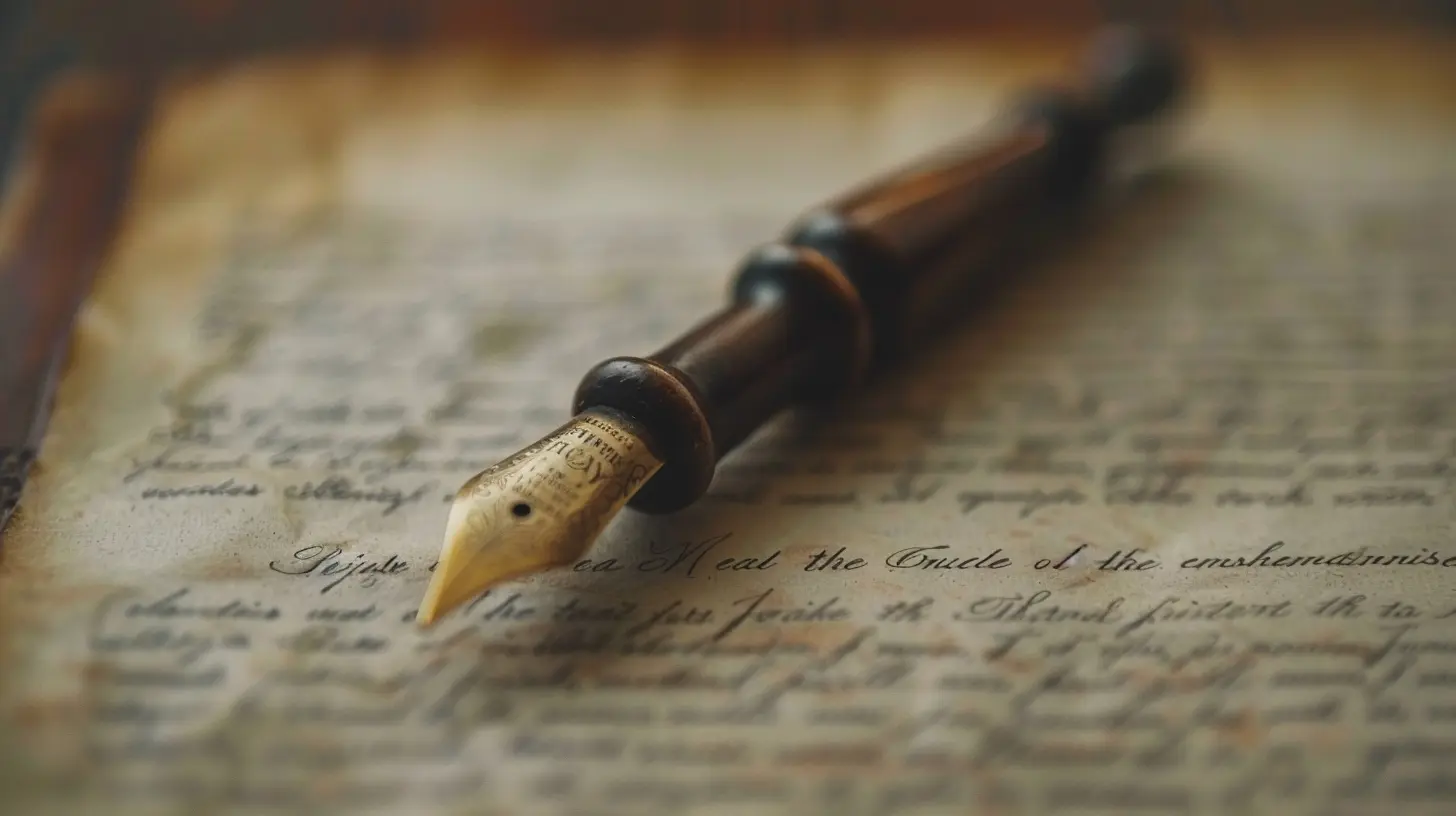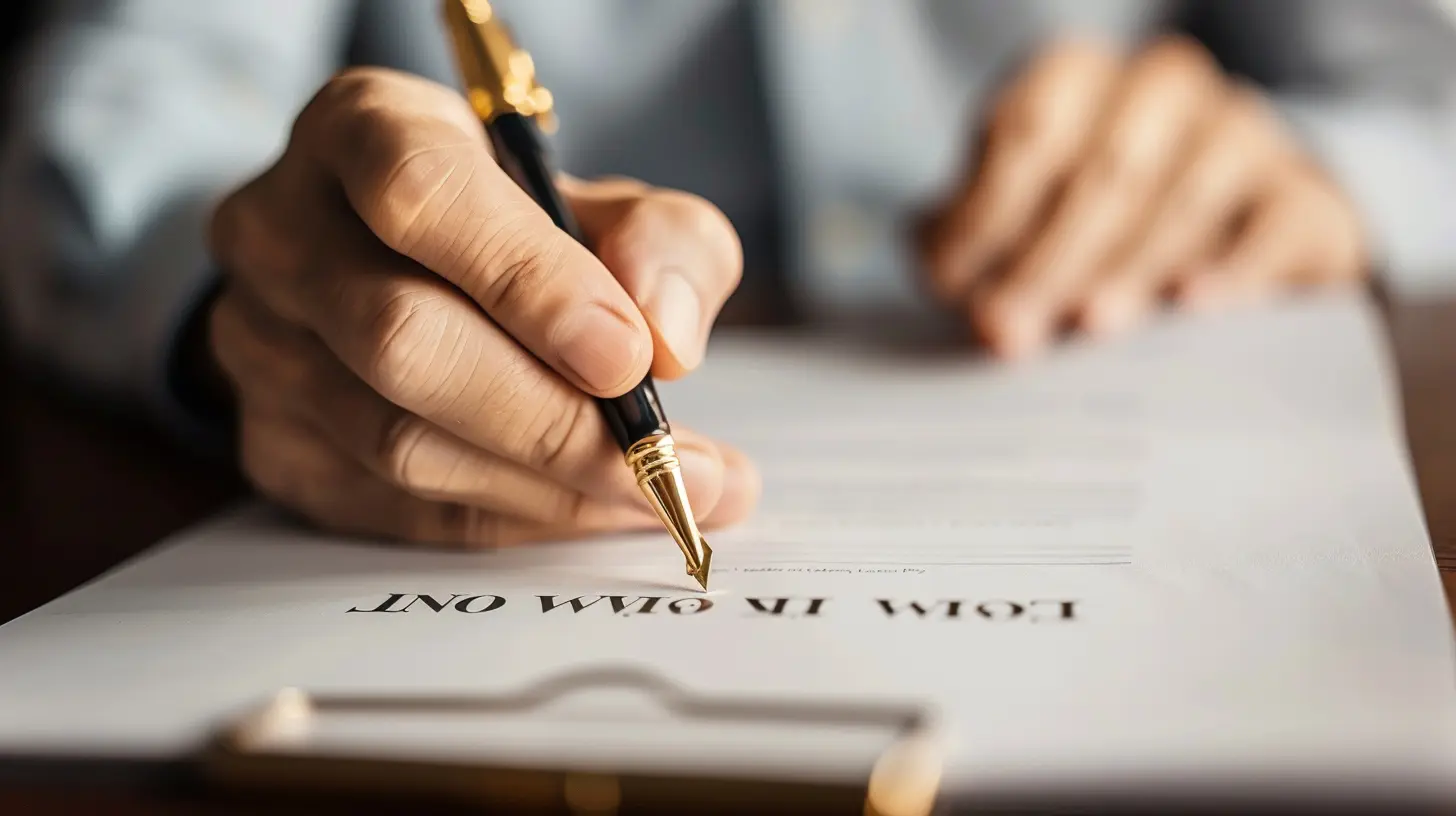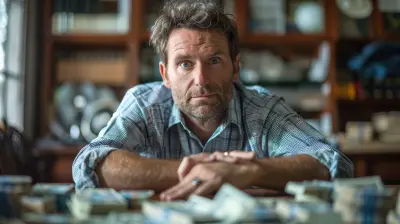15 January 2025
Let’s face it—thinking about death isn’t exactly the most thrilling thing you’ll do today. But here’s the truth: it’s one of the most important things you can do for yourself and your loved ones. Whether you're sipping your morning coffee or scrolling through life advice at 2 a.m., one question might cross your mind, "Do I really need a will? Is estate planning something I should think about now?" Buckle up, because today, we’re diving deep into why estate planning is more than just boring legal jargon. Spoiler alert: it’s about protecting what matters most. 
What Exactly Is a Will (and Why Should You Care)?
Let’s break it down. A will is essentially a legal document that spells out what you want to happen to your stuff—your assets, possessions, and property—when you’re no longer around. Think of it like leaving behind an instruction manual for your family. Without it, your loved ones may get stuck in a legal mess, where courts decide who gets what. Trust me, no one wants that drama.But here’s the kicker: A will is just one component of a much larger picture called estate planning. This isn’t a playground for the ultra-wealthy—it’s for anyone who owns anything and cares about who gets it when they’re gone. Your car, your house, your savings, even that vintage vinyl collection you’re proud of—you can ensure they go to the right people. Estate planning is the ultimate way to say, “I got this.” 
Estate Planning: More Than Just a Will
So, you’ve heard of a will. That’s great, but estate planning is like the “all-inclusive” vacation package—it covers so much more. Here’s what it can include:1. Power of Attorney
Ever wonder who makes financial or medical decisions if you’re incapacitated? A power of attorney gives someone the authority to act on your behalf. Think of it as a “Plan B” when life throws curveballs.
2. Living Will
This isn’t the same as a standard will. A living will outlines your medical preferences if you can’t communicate them yourself. Want to avoid certain treatments? This is how you make your voice heard, even when you can’t speak.
3. Trusts
If the word “trust” makes your eyes glaze over, hang on. Trusts are tools that let you transfer assets to beneficiaries while skipping a heap of legal headaches. Want to make sure your kids inherit your assets without a six-month court battle? Trusts might just become your new best friend.
4. Beneficiary Designations
Did you know some accounts—like insurance policies or retirement funds—have their own built-in way to pass on money? That’s called a beneficiary designation, and it often trumps what’s written in your will. Yep, you read that right. Updating this is critical. 
Why Ignoring Estate Planning Is a Bad Idea
Let’s play devil’s advocate: What if you decide to skip all this planning stuff? No big deal, right? Wrong. Here’s what could go down:1. State Laws Decide for You
Without a will or estate plan, your assets will be distributed based on your state’s intestacy laws. Spoiler: The system isn’t exactly known for prioritizing your specific wishes.
2. Family Feuds
Ever heard of families fighting over heirlooms, money, or property? It’s more common than you think. An estate plan removes ambiguity and prevents loved ones from squabbling over who gets the dining table.
3. Unnecessary Costs and Delays
Probate is the court-supervised process of distributing your assets. Without proper planning, this process can drag on for months (or even years) and cost a small fortune. With a solid estate plan, you can fast-track everything.
4. Your Kids' Future Could Hang in the Balance
If you’re a parent, this one’s for you. Who will take care of your kids if you’re not around? Naming a guardian in your will isn’t just recommended—it’s essential. 
"But I Don’t Have Much to Give… Do I Still Need a Will?"
Good question! The short answer is, yes. Even if you don’t have a sprawling estate or millions in your bank account, estate planning is about more than just money. It’s about having control over what happens to anything you leave behind.Maybe you only have a small savings account, a modest home, or cherished personal belongings. Your estate plan ensures those assets are handled according to your wishes. And honestly, wouldn’t it feel better knowing you’ve taken care of everything?
When Should You Start Estate Planning?
Here’s a rule of thumb: The earlier, the better. Estate planning isn’t just for retirees or the ultra-wealthy. Life is unpredictable. If you own property, have kids, or want to designate who gets what, it’s time to start.Getting married? Having kids? Buying a house? These milestones are estate-planning wake-up calls. Even if your plan evolves over time (which it will), having something in place is better than nothing.
Common Misconceptions About Wills and Estate Planning
Let’s bust some myths, shall we?- “I’m too young to create a will.”
Sorry to burst your bubble, but there’s no such thing as being too young. If you’re over 18 and own anything, you need a plan.
- “I can just tell my family what I want.”
Verbal instructions hold no legal weight. Your wishes need to be set in stone (or at least on paper).
- “Estate planning is way too expensive.”
Sure, hiring an attorney requires some upfront costs, but compare that to the time, stress, and fees your family could face without one.
How to Get Started With Estate Planning
Ready to take the plunge? Here’s a simple roadmap:1. Take Inventory
Make a list of your assets: property, bank accounts, investments, retirement funds, personal possessions—everything.
2. Decide on Beneficiaries
Who gets what? This is your chance to play Oprah—“You get the car! You get the savings account!”
3. Choose Key Players
Pick an executor for your will and a potential guardian for your kids (if applicable). Choose someone responsible.
4. Consult a Professional
While there are DIY options, an estate planning lawyer can help you avoid rookie mistakes. Better safe than sorry.
5. Keep It Updated
Life changes, and so should your estate plan. Got married? Had kids? Bought a new property? Update your will accordingly.
The Emotional Benefits of Estate Planning
Let’s not underestimate the peace of mind that comes with estate planning. Knowing your loved ones will be taken care of and spared legal headaches is priceless. Plus, you’ll sleep better at night knowing you’ve handled your business like a pro.Think of estate planning as a love letter to your family. It’s your way of saying, “I care about you enough to eliminate confusion and stress when I’m gone.”
Final Thoughts: Do You Really Need a Will?
So, do you really need a will? The answer is a resounding yes. Whether you’re flush with cash or living a minimalist dream, estate planning is about making sure your hard-earned assets and cherished memories land in the right hands.The power of estate planning isn’t just about the tangible—it’s about leaving a legacy. It’s about taking control of your future instead of letting the legal system do it for you. Planning ahead isn’t morbid; it’s empowering.
The best time to start estate planning? Yesterday. The second-best time? Right now.












Dakota McLoughlin
In life's fleeting dance, a will weaves dreams, Guarding legacies with love's embrace, Secure the future, let hope gleam.
February 7, 2025 at 9:17 PM